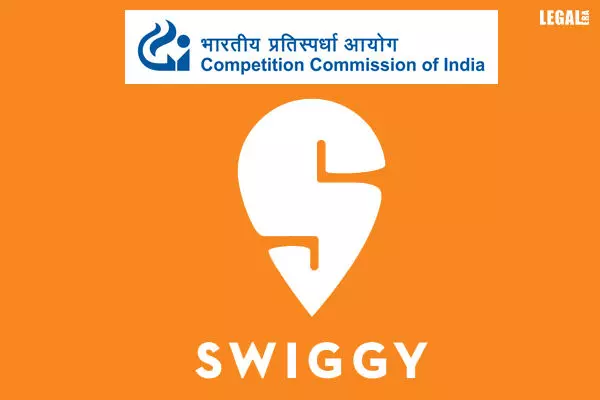- Home
- News
- Articles+
- Aerospace
- AI
- Agriculture
- Alternate Dispute Resolution
- Arbitration & Mediation
- Banking and Finance
- Bankruptcy
- Book Review
- Bribery & Corruption
- Commercial Litigation
- Competition Law
- Conference Reports
- Consumer Products
- Contract
- Corporate Governance
- Corporate Law
- Covid-19
- Cryptocurrency
- Cybersecurity
- Data Protection
- Defence
- Digital Economy
- E-commerce
- Employment Law
- Energy and Natural Resources
- Entertainment and Sports Law
- Environmental Law
- ESG
- FDI
- Food and Beverage
- Gaming
- Health Care
- IBC Diaries
- In Focus
- Inclusion & Diversity
- Insurance Law
- Intellectual Property
- International Law
- IP & Tech Era
- Know the Law
- Labour Laws
- Law & Policy and Regulation
- Litigation
- Litigation Funding
- Manufacturing
- Mergers & Acquisitions
- NFTs
- Privacy
- Private Equity
- Project Finance
- Real Estate
- Risk and Compliance
- Student Corner
- Take On Board
- Tax
- Technology Media and Telecom
- Tributes
- Viewpoint
- Zoom In
- Law Firms
- In-House
- Rankings
- E-Magazine
- Legal Era TV
- Events
- News
- Articles
- Aerospace
- AI
- Agriculture
- Alternate Dispute Resolution
- Arbitration & Mediation
- Banking and Finance
- Bankruptcy
- Book Review
- Bribery & Corruption
- Commercial Litigation
- Competition Law
- Conference Reports
- Consumer Products
- Contract
- Corporate Governance
- Corporate Law
- Covid-19
- Cryptocurrency
- Cybersecurity
- Data Protection
- Defence
- Digital Economy
- E-commerce
- Employment Law
- Energy and Natural Resources
- Entertainment and Sports Law
- Environmental Law
- ESG
- FDI
- Food and Beverage
- Gaming
- Health Care
- IBC Diaries
- In Focus
- Inclusion & Diversity
- Insurance Law
- Intellectual Property
- International Law
- IP & Tech Era
- Know the Law
- Labour Laws
- Law & Policy and Regulation
- Litigation
- Litigation Funding
- Manufacturing
- Mergers & Acquisitions
- NFTs
- Privacy
- Private Equity
- Project Finance
- Real Estate
- Risk and Compliance
- Student Corner
- Take On Board
- Tax
- Technology Media and Telecom
- Tributes
- Viewpoint
- Zoom In
- Law Firms
- In-House
- Rankings
- E-Magazine
- Legal Era TV
- Events
Karnataka High Court Unsure Of Jurisdiction To Adjudicate Swiggy's Plea Against CCI Order

Karnataka High Court Unsure Of Jurisdiction To Adjudicate Swiggy's Plea Against CCI Order
The Karnataka High Court observed that it still had doubts regarding its jurisdiction to address Swiggy's plea against a Competition Commission of India (CCI) order permitting a restaurant association access to confidential data related to the food delivery app.
During the hearing, Justice MGS Kamal also voiced similar reservations. On that occasion, the Court deliberated whether the case could be adjudicated in Karnataka given that the CCI proceedings had transpired in Delhi.
Swiggy, emphasized today that numerous judicial precedents suggest that a High Court can entertain a dispute with nationwide implications if part of the cause of action arises within the territorial jurisdiction of that Court.
Justice Kamal, however, responded that in Swiggy's case, the crucial aspect of whether a part of the cause of action has arisen in Karnataka is not apparent from Swiggy's pleadings.
"Can you point out which part of cause action arises in Karnataka, except receiving a copy of the CCI order in Karnataka? Please see para. 81 (of the petition)," the judge remarked.
Swiggy admitted that the pleading could have been articulated more clearly and requested the Court's permission to submit an additional affidavit to clarify this aspect of territorial jurisdiction.
"I have all-India contracts. The CCI investigation was against Swiggy and Zomato, and in the investigation, Swiggy was found to be dominant in South India and Zomato was found to be dominant in North India. Paragraph 81 should have been worded better. I will file an affidavit on the entire events that have transpired," Poovayya said.
Justice Kamal further remarked, "If you see the judgments, the central point is that of 'cause of action', which has to be culled out of the petition. Subject to your filing an affidavit, the court is not convinced."
"This is the price I pay for court, having read the papers!" Poovayya replied in a lighter vein.
"Please give me the opportunity; I will file an affidavit. This will have far-reaching ramifications," the senior lawyer added.
Meanwhile, Additional Solicitor General (ASG) N Venkataraman represented the CCI and stated, "Any amount of affidavit is not going to improve his case...Why should it be Karnataka? Why can't it be Chennai? Or Telangana or West Bengal? Because it has a pan-India presence. You can't pick and choose; we would be interpreting Article 226(2) in a completely distorted way!"
The ASG maintained that the dispute could not be heard in Karnataka.
However, the Court decided to continue hearing the case on May 28 and granted Swiggy permission to file its additional affidavit.
The dispute revolves around confidential information provided by Swiggy to the CCI's Director General (DG) as part of an investigation into allegations by the National Restaurant Association of India (NRAI) regarding anti-competitive practices by Swiggy and Zomato.
The DG's investigation was initiated in 2022, following the CCI's determination that the NRAI had established a prima facie case against Swiggy and Zomato.
The DG compiled an investigation report earlier this year. In April 2024, the CCI granted NRAI's request for access to the DG's findings, which included confidential information submitted by Swiggy and Zomato.
Swiggy has challenged this directive in its writ petition before the Karnataka High Court. The petition argues that sharing such confidential data was unnecessary or expedient for the CCI proceedings and that it would cause irreparable harm to Swiggy if such sensitive data were provided to the NRAI.


